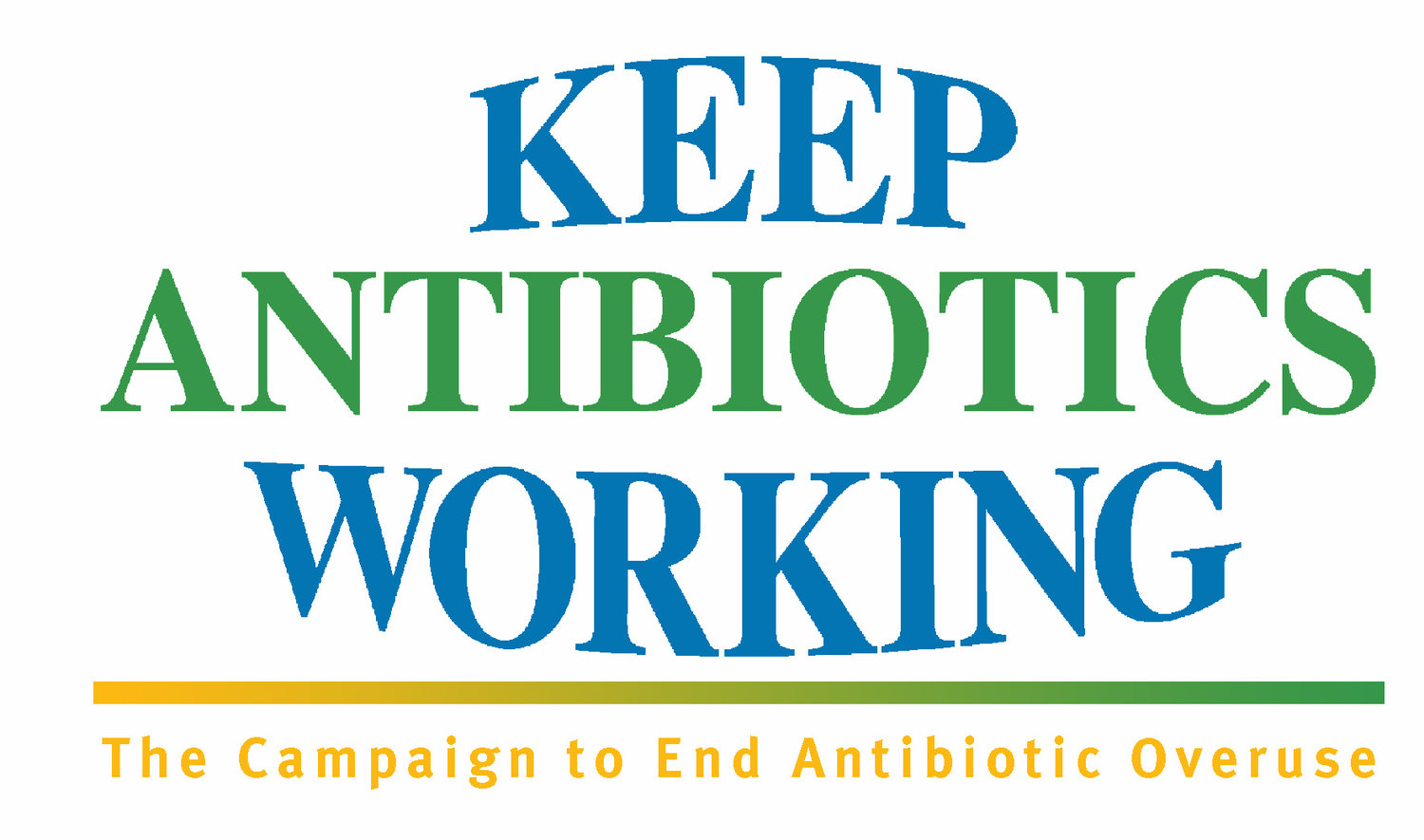
All blog posts are the sole opinion of the author and do not necessarily reflect the official position of Keep Antibiotics Working or Food Animal Concerns Trust.

Healthy Pigs do not need Antibiotics
Steve Roach, Safe & Healthy Food Program Director, Food Animal Concerns Trust
The way most pigs are raised in the US makes them sick. The US produces over 100 million pigs each year and most of them are raised under conditions that lead to consistently sick animals. Farms manage this with antibiotic drugs in the animal’s feed. Pigs are most at risk for disease after weaning when they are switching from milk to solid grain-based diets. Weaning in itself is stressful as their guts have to change to digest sold food not milk, baby pigs are no longer getting antibodies that help fight off disease from their mom’s milk, and they are often moved to new buildings where they are crowded and mixed with other pigs. They often are still recovering at this point from having their teeth clipped, being castrated, and having their tails docked. All of these things are stressful for the animals. You would think that pig producers would do whatever they can to keep their pigs healthy.
When voting with your dollars to stop antibiotic resistance, what should you do about cheating in the market place?
STEVE ROACH , SAFE AND HEALTHY FOOD PROGRAM DIRECTOR, FOOD ANIMAL CONCERNS TRUST
Everyone has to eat, and we often make decisions about what to eat based on our values. For some people, this means becoming a vegetarian or buying humanely raised products. Many people also seek out meat from animals that have been raised without antibiotics both because it is healthier individually and because it also reduces the risk to the community from antibiotic resistance superbugs.
Antimicrobial Resistance : An even bigger threat than we thought
MADELEINE KLEVEN, SAFE AND HEALTHY FOOD PROGRAM ASSOCIATE, FOOD ANIMAL CONCERNS TRUST
According to new data, the antibiotic resistance crisis is even worse than we thought. A study published in Lancet last week estimates 1.27 million deaths globally were caused by antibiotic resistant-superbugs in 2019. The previous widely accepted estimate from the The Review on Antimicrobial Resistance attributed 700,000 deaths to antibiotic resistant superbugs. While past data has given us a window into this growing global threat, the Lancet article provides a more comprehensive analysis that utilizes additional country specific data as well as deaths associated with a much broader group of antibiotic-resistant superbugs. Though a shocking estimate, it is likely the most accurate representation of the global burden of antimicrobial resistance (AMR) to date.
Finally, sales of antibiotics for use in food animals have stopped climbing, but not for turkeys. To protect public health, sales need to go down not just plateau.
STEVE ROACH , SAFE AND HEALTHY FOOD PROGRAM DIRECTOR, FOOD ANIMAL CONCERNS TRUST
Data released by the FDA today showed a slight drop (3%) in the sales of medically important antibiotics for use in food-producing animals. This is only the third time that sales have dropped from year to year since data began being collected in 2009. Particularly good were reductions in the use of two classes of drugs, cephalosporins and macrolides. These drugs are considered critically important to human medicine because they are the go-to drugs for infections that people catch from food animals. The World Health Organization (WHO) recommends that these drugs not be used at all in animals, so having sales of them go down is important.
McDonald’s needs to step up and follow through on their commitment to preserving antibiotics
MADELEINE KLEVEN, SAFE AND HEALTHY FOOD PROGRAM ASSOCIATE, FOOD ANIMAL CONCERNS TRUST
Antibiotic resistant superbugs threaten to dismantle our entire medical system and kill as many as 10 million people per year by 2050. A key driver of antibiotic resistance is the overuse of antibiotics in food-animal production, especially the overuse of antibiotics that are important to human medicine. In the United States, approximately two thirds of the medically important antibiotics sold in the U.S. go to meat production. In cattle, the bulk of these are given in feed not to treat illness but to prevent problems caused by unhealthy feedlot diets and by the stress of shipping baby calves across the country to unhealthy crowded feedlots. This is unacceptable and needs to change. Food animals should be raised under healthy conditions so that farms and feedlots do not routinely use these lifesaving drugs. That is where McDonald’s and other food companies come in.
Feed Mills and Antibiotic Use Data
STEVE ROACH , SAFE AND HEALTHY FOOD PROGRAM DIRECTOR, FOOD ANIMAL CONCERNS TRUST
Feed mills could be an important source of how antibiotics are used on farms. Sales of antibiotics for use in feed are the highest of all sales in the US, outstripping sales in human medicine. Existing Food and Drug Administration (FDA) rules require feed mills to keep records of the amount, reason for use, and the animals receiving them. The rules also require feed mills to make these records available to the agency for inspection and copying. What is lacking is a willingness by the FDA to actually go out and collect these records.
KAW calls on the USDA to make sure farms are not the source of the next pandemic
MADELEINE KLEVEN, Safe and Healthy Food PROGRAM ASSOCIATE, FOOD ANIMAL CONCERNS TRUST
The majority of the most recent epidemic and/or pandemic illnesses which have plagued the globe, including COVID-19, Ebola, H1N1 swine flu, and SARS have emerged from animals. As experts have noted, identifying and combating both present and future pandemic threats requires a comprehensive surveillance system to monitor animal pathogens which have the potential to cause human disease.
The FDA Must Prioritize Public Health Over the Interests of the Animal Drug Industry
STEVE ROACH , SAFE AND HEALTHY FOOD PROGRAM DIRECTOR & MADELEINE KLEVEN, PROGRAM ASSOCIATE, FOOD ANIMAL CONCERNS TRUST
In 2003, the Animal Drug User Fee Act (ADUFA) was signed into law. It authorizes the Food and Drug Administration (FDA) to collect fees from the animal drug industry in exchange for, “expediting the animal drug development process and the review of new and supplemental animal drug applications.” In short, the law directs the FDA to charge fees to the animal drug makers in order to speed up and streamline animal drug approvals and set targets for how quickly the FDA takes to review drugs. The program gives the drug makers significant power over the FDA because it requires the FDA to negotiate with the animal drug industry every five years on how the collected fees will be used, and the fees make up a large part of the FDA’s budget related to the regulation of animal drugs.
The FDA Should Control the Spread of Superbugs by Stopping the Overuse of Antibiotics on Farms
STEVE ROACH , FOOD SAFETY PROGRAM DIRECTOR, FOOD ANIMAL CONCERNS TRUST
The overuse of antibiotics in food animals helps fuel the development and spread of antibiotic resistant superbugs. These superbugs kill someone every fifteen minutes in the United States and pose a huge threat to global public health.
The overuse of antibiotics is a large problem in the United States. By volume of sales almost two-thirds of medically important antibiotics - antibiotics that are used for treating both animal and human infections- in the U.S. are given to food animals. These drugs are often given as insurance against possible future diseases instead of being given for the treatment of diagnosed illnesses. This method represents antibiotic overuse because the amount of animals receiving drugs is much higher compared to the amount of animals that would receive drugs if farms waited for signs of disease before distributing antibiotics. If farmers can predict whether or not an animal will get sick, then they should be implementing practices to keep them healthy rather than preventatively giving them antibiotics. Food production animals require healthier homes and better food.
Federal Agencies Need to Step up and Address the Root Causes of Antibiotic Resistance
MADELEINE KLEVEN , FOOD SAFETY PROGRAM ASSOCIATE, FOOD ANIMAL CONCERNS TRUST
As the threat of antibiotic resistance (ABR) grows every day and millions of Americans suffer from infections caused by superbugs, the public is left questioning - what are federal agencies doing to protect our health? It is essential that federal agencies take action to support research on ABR. Currently, the USDA’s National Institute of Food and Agriculture (NIFA), which funds a plethora of research across all agriculture-related scientific fields, including ABR, is missing the mark.
Antibiotic Sales for Food Animals Continue to Rise
STEVE ROACH , FOOD SAFETY PROGRAM DIRECTOR, FOOD ANIMAL CONCERNS TRUST
FDA just released its annual report on sales of antibiotics for use in food producing animals. The big take away is that sales of medically important antibiotics continue to rise (3% between 2018 and 2019). This is dangerous because antibiotic overuse in animals leads to antibiotic resistant superbugs that cause difficult to treat infections in humans and animals. This is the second consecutive year that antibiotic sales have increased, following drops in 2016 and 2017. Prior to 2016, there were five years of increases in sales. In order to adequately contain the threat of superbugs we need additional drops in sales rather than increases.
The latest U.S. National Action Plan to Combat Antibiotic-Resistant Bacteria Fails to Address the Overuse of Antibiotics on Farms.
MADELEINE KLEVEN , FOOD SAFETY PROGRAM ASSOCIATE, FOOD ANIMAL CONCERNS TRUST
So far, the U.S. response to the deadly global pandemic of drug-resistant superbugs has been flawed and feeble. This is illustrated in a recent update to the National Action Plan (NAP) to combat ‘superbug’ bacteria which covers the years 2021 to 2025. The plan does not include actions needed to reduce the tremendous overuse of critical antibiotics on farms and feedlots. This overuse of antibiotics continues to drive development of resistance by placing selective pressure on bacteria and in turn favoring the emergence of deadly drug-resistant strains. Despite goals of the Federal Task Force on Combating Antibiotic-Resistant Bacteria to “improve antibiotic use and reporting” and “enhance efforts to slow the emergence and spread of resistance,” their National Action Plan and coordinated strategy falls extremely short.
